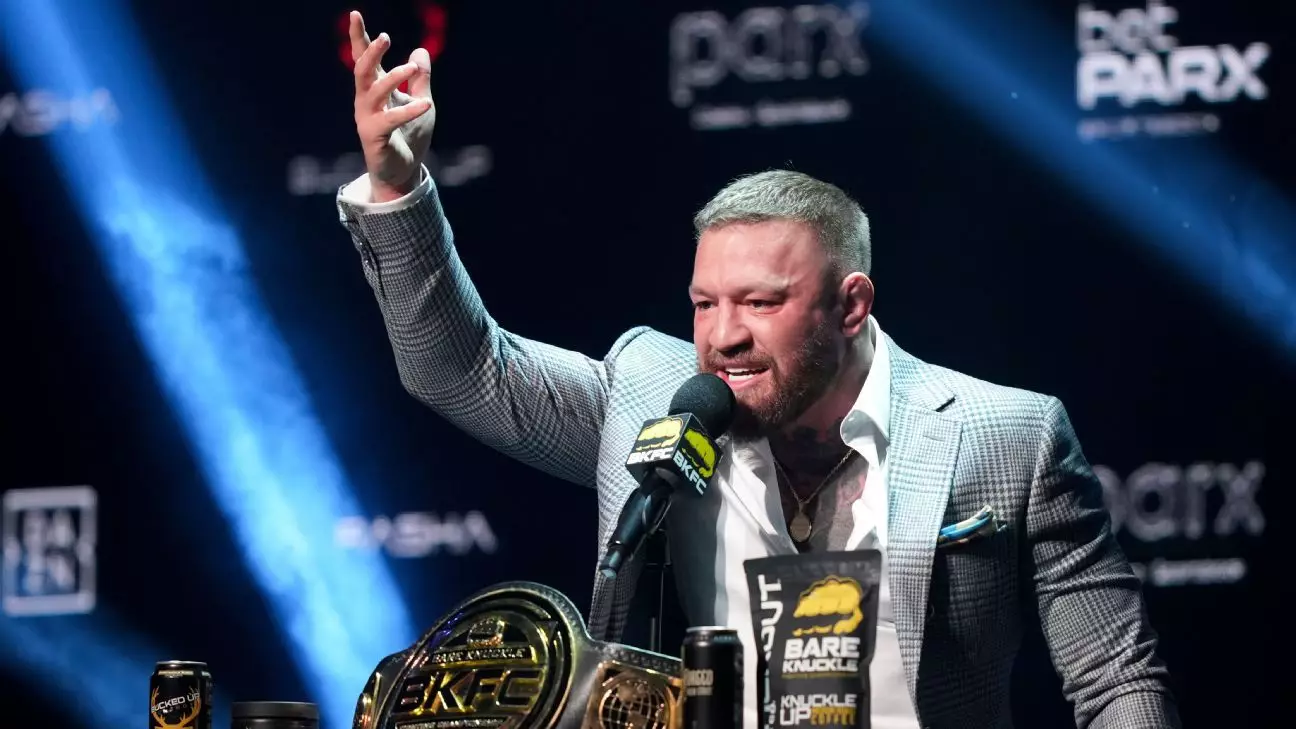Conor McGregor, a name synonymous with mixed martial arts (MMA), recently expressed his desire to engage in an exhibition boxing match against social media sensation and WWE star Logan Paul. However, McGregor’s ambitions hit a roadblock as the UFC, the promotion he has historically fought under, denied him the opportunity to pursue this match in India. The UFC’s refusal is indicative of the complex dynamics between professional sports promotions and their athletes, especially when the prospect of boxing, wrestling, and MMA intertwine.
In an interview with MMA personality The Schmo, McGregor candidly revealed that despite the formal offer on the table, the UFC did not align with the concept of what he termed a “glorified spar.” This response from the UFC highlights a significant concern: protecting their brand image and maintaining control over their fighters’ activities. The dissolution of this potential bout seems to stem from the UFC’s reluctance to allow its marquee fighter to engage in an event that doesn’t involve the octagon, even when it could prove lucrative. McGregor’s assertion of the rising stocks within TKO Group Holdings, which encompasses both the UFC and WWE, suggests that this fight could have been mutually beneficial, potentially opening new revenue streams in burgeoning markets like India.
McGregor’s aspirations are further complicated by his last competitive appearance, which ended in a traumatic leg injury during a match against Dustin Poirier in 2021. Since then, his preparations for a comeback have been marred by injuries, including a broken toe that led to his withdrawal from a highly anticipated matchup against Michael Chandler at UFC 303. The juxtaposition of his past accomplishments as a two-weight UFC champion against his ongoing struggles underscores the unpredictable nature of combat sports athletes’ careers.
Adding to his tumultuous journey, McGregor was recently found liable in a sexual assault case, resulting in a significant financial judgment. This legal cloud complicates his return to competition, affecting not only his mental preparedness but also the UFC’s willingness to align their brand with him during such challenges. In light of these issues, the UFC’s hesitance to allow participation in any sports events that divert from their structured framework becomes increasingly understandable.
Interestingly, McGregor has shown an openness to the evolving landscape of sports, where influencer culture intersects with traditional professional fighting. With remarks on the lucrative potential of matches against influencers such as the Paul brothers, his perspective appears to adapt to the current era where traditional boundaries in sports are blurring. Although the UFC may remain hesitant, McGregor’s implications of monetary prospects signal a certain recognition of the profitability within this new domain of entertainment.
While the matchup between McGregor and Paul seems redundant amid the traditional restrictions of combat sports, it highlights a significant shift in how athletes view their roles and the potential for financial gain outside conventional bouts. The balance of power between promotions, their stars, and the evolving marketplace is delicate, and it remains to be seen how these dynamics will shape the future of combat sports.


Leave a Reply